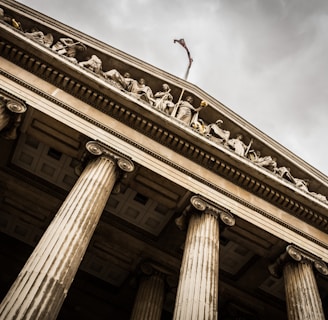Reforming the Cracked System of Sports: The Unseen Challenges of the Olympics


Introduction to the Problematic Landscape
The world of sports transcends beyond mere games; it embodies fair competition, striving for excellence, and, most essentially, integrity. Unfortunately, the integrity of the Olympic system and its governing bodies has come under scrutiny, revealing a deeply cracked framework that demands immediate attention. The International Olympic Committee (IOC), World Anti-Doping Agency (WADA), and Court of Arbitration for Sport (CAS) are all entwined in an intricate scenario where fairness seems increasingly elusive.
The Unfair Decisions and Management Issues
One of the most alarming aspects of current sports governance is the prevalence of unfair decisions stemming from underregulated organizations. The overlap of influence between these bodies often leads to biased actions that undermine the rights of athletes and sporting federations alike. With the IOC and WADA exerting considerable power, the systems in place oftentimes protect their interests rather than those of the athletes they are meant to serve. Without significant reforms, athletes who are supposed to be celebrated can feel marginalized, knowing that their rights hang in the balance under flawed decision-making processes.
A Call for Comprehensive Reform
The need for reforms within the Olympic system, as well as CAS, WADA, and other regulatory authorities, cannot be overstated. These reforms are not merely suggestions; they are an absolute necessity. The management structures need restructuring to eliminate control by a select few, who currently manipulate regulations and decisions to favor their agendas. A transparent system that promotes athlete rights and ensures fair play must be prioritized, enabling all individuals involved in sports to participate with equal footing.
Imagine a scenario where the newly elected representatives of CAS, WADA, and various athletic federations operate without the undue influence of higher management. This is the vision that proponents of reform strive toward—a sporting environment where decisions reflect true competition rather than hidden preferences. This vision can only be realized if we collectively advocate for significant changes to the operational mechanics of these governing bodies.
Conclusion: The Path Forward
As we scrutinize the current state of affairs in sports management and governance, it becomes increasingly clear that reforms are not just desired but absolutely essential. The injustices embedded in the current framework can no longer be ignored. It is time for stakeholders—from athletes to national federations—to unite in demanding change. Without substantial reforms, the credibility of the Olympic Games and the principles of fair competition will continue to erode. By fostering a system governed by ethics, transparency, and accountability, we can pave the way for a brighter, fairer future in sports.
